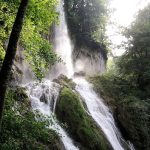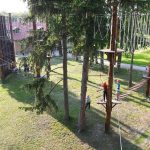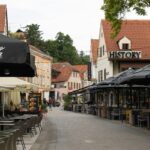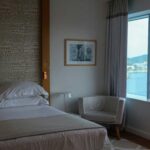Nine months ago, the first health tourism cluster in eastern Croatia was presented, called Pannonian Health, which today brings together twelve members of different health, tourism and business profiles, and whose main goal is to develop and promote the town of Osijek and eastern Croatia as new desirable destinations for health and tourism, reports Glas Slavonije on November 22, 2018.
During this time, the cluster has developed a strategy and opened up for new companies that see their interest in health tourism. The cluster manager Manuel Magdić explained who are the ideal potential partners for this business and promotion concept.
Who are currently members of the Pannonian Health Cluster and what are the benefits of being a member?
We currently have twelve members, from the field of health services, hospitality and accommodation services, as well as transportation, education and information technology. Our members are Air Pannonia, Bizovačke Toplice Spa, Čes Dental Centre, Lege Artis Polyclinic, Maksimilijan private accommodation services, Edukos Instruction Centre, Dr. Balog Eye Polyclinic, Dr. Saša Đukić Dental Medicine Clinic, Svijetli Dvori winery, Szabo winery, and companies providing us with IT support, Ofir and Betaware. We have decided that the founders and their representatives are members of the cluster steering committee.
We are open to all other companies which see their interest in being part of the Pannonian Health cluster, provided they operate in the fields of medicine, transportation, catering and accommodation services and entertainment, and that their ideas and diversity can contribute to our development.
The basic benefit of being a cluster member is the promotion of business activities through available marketing channels at the national and international level. This includes creating a complete company profile in German and English on the cluster’s website, with the possibility for direct communication with customers, ads on social networks such as Facebook and Instagram, Google AdWords advertising, printed promotional brochures, leaflets and booklets, as well as the presentation of companies at health fairs and conferences. Many may not know this, but the cost of attending conferences and fairs on health tourism with the opportunity to present your business is exceptionally high, so the cluster is a perfect opportunity for companies to present their offer to international clients. All members are represented equally with other members.
Do you have the initial feedback from foreign agencies and tourists? Have you already seen the first results of being part of a cluster?
“Ten days ago we were in Turin, and last month in Austria. The feedback is excellent because most European countries have a positive perception of Croatia. Our goal is to connect members with international agencies and providers so that they send potential customers to our region. That was our task in Austria, but also in Crikvenica, where we participated in a conference organized by the Kvarner cluster, learned from their experiences and experiences of successful destinations in the field of health tourism such as Malaysia. We had the opportunity to get introduced to some of the agents from Europe, with whom we immediately got in touch.
For now, we have individual visits to our members, mostly from Austria and Germany. There are also many of our people who work abroad and are emotionally linked to Croatia and come here with their whole families, enjoying the tourist offer of our region. We see them as our strongest ambassador. We are confident that we have high-quality professionals in this town and region and that we can offer top-notch service.
What is the vision of the Pannonian Health cluster’s development?
There are several clusters in Croatia presenting and integrating the health tourism offer of particular regions. Our long-term plan is to connect with as many such organizations as possible to present the whole of Croatia and the Pannonian region as a desirable destination for health and tourism. As the name of the cluster says, we do not want to limit ourselves just to Slavonia and Baranja in the long run. We are open for cooperation with companies from neighboring countries, the Pannonian region, Serbia, Bosnia and Herzegovina and Hungary, especially because such cooperation opens up the possibility for projects through the EU cross-border cooperation initiatives.
Are there any preconditions that future members need to fulfill to become part of the cluster?
The main precondition is to have a website translated into German and English to enable potential clients to consider whether they want to cooperate. If the website and promotional materials are not ready immediately, there is a transition period for new members. It is also important that team members speak German and English and that the company can be classified into a category such as medical services, transportation, accommodation, catering, education or entertainment. Of course, we are open to all those who can contribute to the Pannonian Health cluster with their activities and want to support this idea. We invite them to join us with their proposals, donations or some in some other way, and we will gladly introduce them as partners of Slavonia and Baranja. We also invite all tourist agencies who see their interest in health tourism to come to us.
For more on health tourism in Croatia, click here.
Translated from Glas Slavonije (reported by Nefreteta Z. Eberhard).









